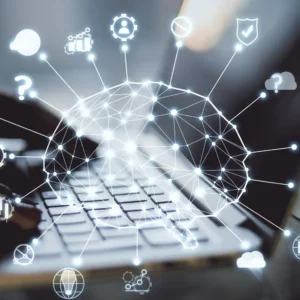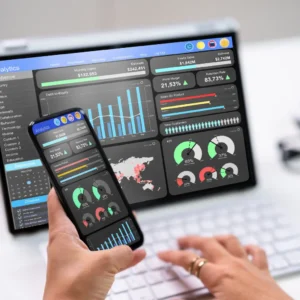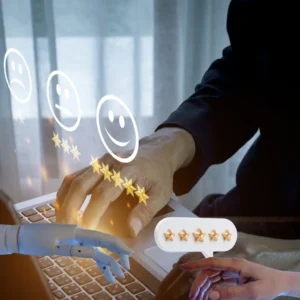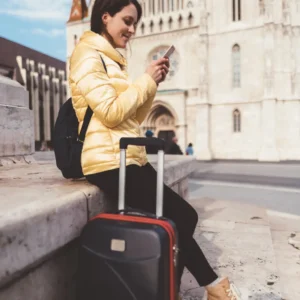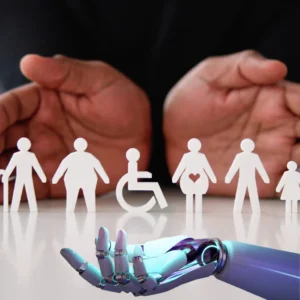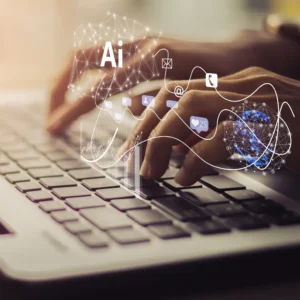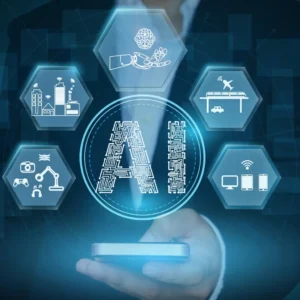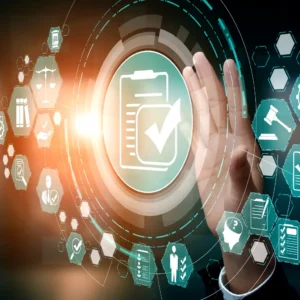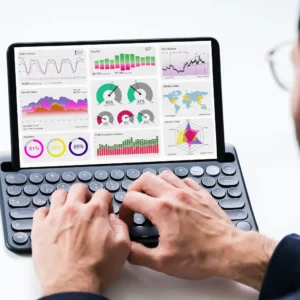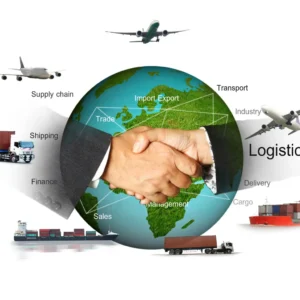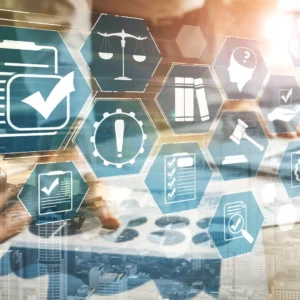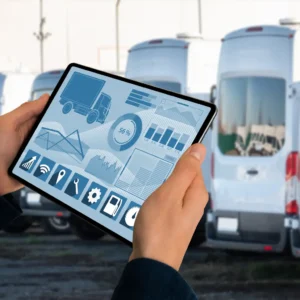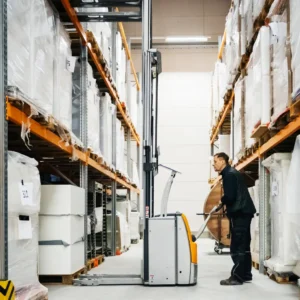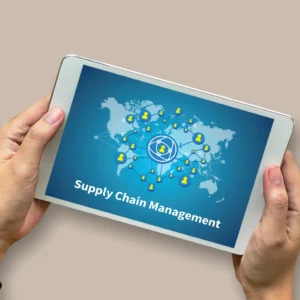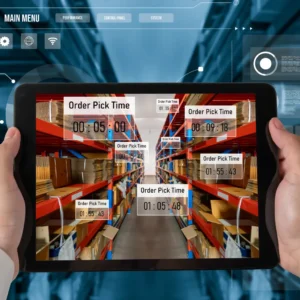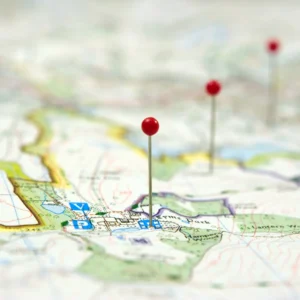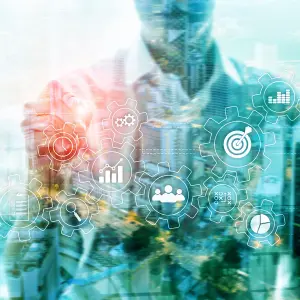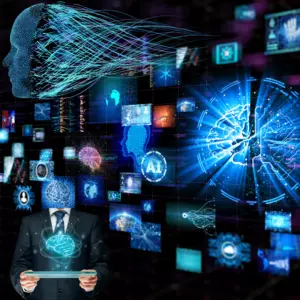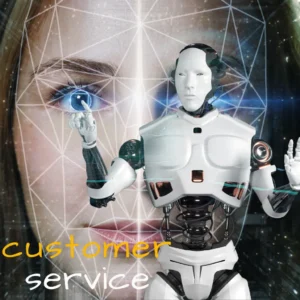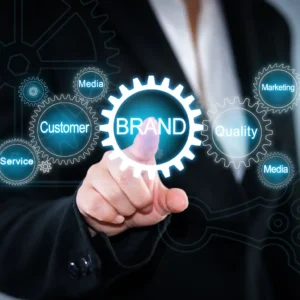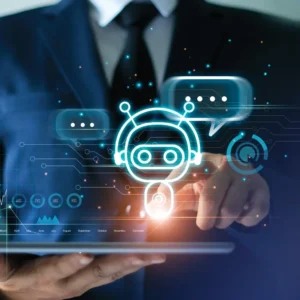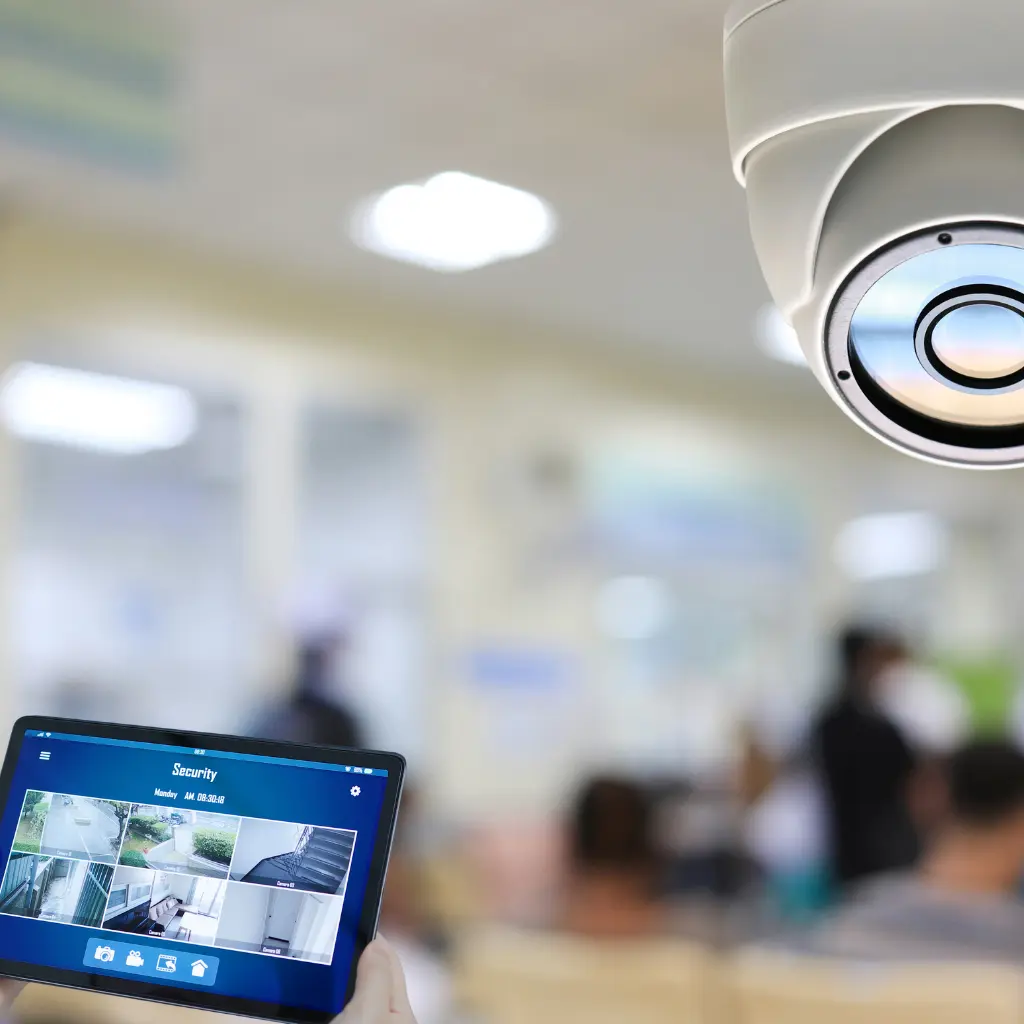
Securing Hospitality
Unleashing the Power of AI for Safety and Security in Travel Experiences
In the ever-evolving Travel and Hospitality industry, ensuring the safety and security of guests and facilities has become paramount. This discussion delves into the development and deployment of AI tools for Safety and Security in the Travel and Hospitality Domain, encompassing a spectrum of applications.
From intelligent surveillance systems using computer vision to biometric authentication for access control and automated emergency response planning, these AI tools are designed to elevate safety protocols and bolster security measures.
This exploration navigates the essential business and software knowledge, hardware requirements, necessary training, integrations, comparative market tools, and strategic recommendations that collectively contribute to fortifying the safety and security landscape in the dynamic realm of travel and hospitality.
Table of Contents

Arindam Roy
An Automation Consultant with 25+ years of IT Experience
5 AI tool ideas for the Safety and Security
AI-driven Surveillance Systems:
- AI Domain: Computer Vision
- Benefit: Enhance security with intelligent surveillance systems that utilize computer vision to identify suspicious activities and alert security personnel promptly. This proactive approach helps prevent potential threats, ensuring the safety of guests and staff.
Health and Safety Compliance Monitoring:
- AI Domain: Computer Vision, Machine Learning
- Benefit: Ensure compliance with health and safety regulations by employing AI to monitor and enforce safety protocols. Computer vision can analyze adherence to hygiene standards, mask-wearing, and social distancing, providing real-time feedback and alerts to address non-compliance issues.
Biometric Authentication for Access Control:
- AI Domain: Biometrics
- Benefit: Improve security measures by implementing biometric authentication for access control to restricted areas and guestrooms. This enhances security and provides authorized personnel and guests with a seamless and convenient experience.
Automated Emergency Response Planning:
- AI Domain: Machine Learning, Predictive Analytics
- Benefit: Enhance safety by predicting potential emergency scenarios using machine learning and automating response plans. This tool utilizes historical data, weather patterns, and other relevant factors to create dynamic and effective emergency response strategies, ensuring a swift and organized reaction to unforeseen events.
Identity Verification for Booking:
- AI Domain: Biometrics
- Benefit: Reduce fraud and enhance guest security by implementing AI-driven identity verification during booking. This ensures that only legitimate individuals make reservations, preventing unauthorized access and enhancing overall customer safety.
Collectively, these AI tools provide a comprehensive safety and security framework for organizations in the travel and hospitality industry. We leverage cutting-edge technology such as computer vision, biometrics, and machine learning to create a secure and trustworthy environment for businesses and their clients.
AI Tools for AI-driven Surveillance Systems
Business Knowledge Requirements:
- Hospitality Security Expertise:
- Understanding of the unique security challenges within the travel and hospitality industry.
- Knowledge of guest privacy concerns and legal regulations related to surveillance.
- Risk Assessment:
- Proficiency in conducting risk assessments to identify specific security threats.
- Ability to prioritize areas for surveillance based on potential risks and vulnerabilities.
- Guest Experience Impact:
- Awareness of the balance between enhancing security and maintaining a positive guest experience.
- Knowledge of how surveillance systems can be discreetly integrated to avoid discomfort.
Software Knowledge Requirements:
- Computer Vision Algorithms:
- Deep understanding of developing and implementing advanced computer vision algorithms.
- Capability to detect and analyze patterns, anomalies, and suspicious activities within video data.
- Machine Learning for Anomaly Detection:
- Implementing machine learning (ML) models for anomaly detection in surveillance footage.
- Continuous improvement and adaptation of models based on evolving security threats.
- Real-time Alert Systems:
- Development of real-time alert systems to notify security personnel promptly.
- Integration of AI-driven decision-making processes for efficient response strategies.
Hardware Requirements:
- High-Resolution Cameras:
- Selection and installation of high-resolution cameras suitable for various environments.
- Consideration of low-light and varying weather conditions.
- Processing Hardware:
- Utilization of high-performance servers or edge computing devices for real-time video analysis.
- Ensuring scalability to handle increasing data loads.
Training Required:
- Security Personnel Training:
- Training security personnel on utilizing and interpreting data from AI-driven surveillance systems.
- Developing response protocols and effective collaboration with AI tools.
- System Maintenance Training:
- Training for IT personnel on maintaining and updating the surveillance system.
- Regular software and hardware checks for optimal performance.
Integrations Necessary:
- Access Control Systems:
- Integrate access control systems to enhance security in restricted areas.
- Automated responses based on access control data.
- Centralized Monitoring Systems:
- Integration with centralized monitoring systems for real-time oversight.
- Coordination with security operations centres.
Comparative Tools in the Market:
- Avigilon Control Center:
- Offers advanced video analytics for security surveillance.
- Customizable alerts and notifications.
- Axis Communications:
- Provides a range of AI-driven surveillance solutions.
- Integration capabilities with various security systems.
Recommendation: Buy and Customize
Considering the complexity and specialized nature of AI tools for Safety and Security in the Travel and Hospitality Domain, it is recommended to leverage existing solutions and customize them to meet industry-specific needs. This approach guarantees efficiency, uses proven technology, and is customized to the unique requirements of the hospitality industry.
Cost/Benefits Analysis:
- Costs:
- Software Licensing:
- Initial investment in software licensing fees.
- Customization costs for aligning the system with hospitality-specific requirements.
- Hardware Deployment:
- Costs associated with installing high-resolution cameras and processing hardware.
- Training Expenses:
- Training costs for security and IT personnel on system usage and maintenance.
- Software Licensing:
- Benefits:
- Time-to-Market:
- Faster implementation compared to building from scratch.
- Immediate integration into existing security infrastructure.
- Proven Technology:
- Utilizing established AI surveillance tools reduces the risk of technical issues.
- Benefit from ongoing updates and improvements from the solution provider.
- Customization for Industry Needs:
- Tailoring the system ensures alignment with the unique security challenges of the travel and hospitality industry.
- Time-to-Market:
In conclusion, buying and customizing existing AI-driven surveillance systems strike a balance between efficiency and industry specificity, providing a robust solution for AI tools for Safety and Security in the Travel and Hospitality Domain.
AI Tools for Health and Safety Compliance Monitoring
Business Knowledge Requirements:
- Regulatory Compliance Understanding:
- In-depth knowledge of health and safety regulations specific to the travel and hospitality industry.
- Awareness of regional and international compliance standards to ensure a comprehensive approach.
- Industry-Specific Safety Protocols:
- Understanding the unique safety protocols and challenges within different travel and hospitality sector segments.
- Ability to align AI tools with industry-specific compliance needs.
- Guest Experience Impact:
- Awareness of how safety measures impact the overall guest experience.
- Balancing compliance enforcement with maintaining a positive and welcoming atmosphere.
Software Knowledge Requirements:
- Computer Vision Development:
- Expertise in developing computer vision algorithms for monitoring safety protocols.
- Ability to detect and analyze compliance with mask-wearing, social distancing, and hygiene practices.
- Machine Learning for Pattern Recognition:
- Implementation of machine learning models for pattern recognition related to safety compliance.
- Continuous improvement and adaptation of models based on evolving safety guidelines.
- Real-time Monitoring Systems:
- Development of real-time monitoring systems to ensure immediate identification of non-compliance.
- Integration of AI-driven decision-making processes for efficient response strategies.
Hardware Requirements:
- Camera Infrastructure:
- Installation of cameras strategically placed to cover critical areas for safety compliance monitoring.
- Consideration of high-resolution cameras for accurate analysis.
- Processing Hardware:
- Deployment of high-performance servers for real-time processing of surveillance data.
- Ensuring scalability to handle increased data loads during peak times.
Training Required:
- Staff Training:
- Training for staff on the proper usage of AI tools for safety compliance monitoring.
- Ensuring understanding of AI-generated alerts and appropriate responses.
- System Administrators:
- Training for system administrators to manage and maintain the monitoring system.
- Regular updates on software and safety protocol adaptations.
Integrations Necessary:
- Alert and Notification Systems:
- Integration with alert and notification systems to inform staff of safety non-compliance.
- Coordination with on-site response teams for immediate action.
- Guest Communication Platforms:
- Integration with communication platforms to inform guests of safety measures and compliance expectations.
- Real-time updates through mobile apps or in-room communication systems.
Comparative Tools in the Market:
- AxxonSoft:
- Provides AI-powered video analytics for safety and security monitoring.
- Customizable solutions for various industries, including hospitality.
- Hikvision Thermal Cameras:
- Offers thermal cameras with AI capabilities for temperature screening and safety compliance.
- Integration with existing surveillance systems.
Recommendation: Buy and Customize
Considering the complexity and specialized nature of AI tools for Safety and Security in the Travel and Hospitality Domain, it is recommended to leverage existing solutions and customize them to meet industry-specific needs. This approach ensures efficiency, proven technology, and tailoring it for the hospitality sector.
Cost/Benefits Analysis:
- Costs:
- Software Licensing:
- Initial investment in software licensing fees for a comprehensive safety compliance monitoring system.
- Customization costs for aligning the system with hospitality-specific requirements.
- Hardware Deployment:
- Costs associated with installing cameras and processing hardware for effective monitoring.
- Training Expenses:
- Training costs for staff and system administrators on system usage and maintenance.
- Software Licensing:
- Benefits:
- Time-to-Market:
- Faster implementation compared to building from scratch.
- Immediate integration into existing safety protocols.
- Proven Technology:
- Utilizing established AI surveillance tools reduces the risk of technical issues.
- Benefit from ongoing updates and improvements from the solution provider.
- Customization for Industry Needs:
- Tailoring the system ensures alignment with the travel and hospitality industry’s unique safety and compliance challenges.
- Time-to-Market:
In conclusion, buying and customizing existing AI-driven safety compliance monitoring systems strike a balance between efficiency and industry specificity, providing a robust solution for AI tools for Safety and Security in the Travel and Hospitality Domain.
AI Tools for Biometric Authentication for Access Control
Business Knowledge Requirements:
- Security Protocols in Hospitality:
- In-depth knowledge of security protocols within the travel and hospitality industry.
- Understanding of access control requirements for both guestrooms and restricted areas.
- Biometric Privacy and Legal Compliance:
- Awareness of legal and privacy considerations related to biometric data usage.
- Ensuring compliance with regional and international regulations governing biometric authentication.
- Guest Experience Impact:
- Understanding how biometric authentication impacts the guest experience.
- Balancing security measures with a seamless and positive guest interaction.
Software Knowledge Requirements:
- Biometric Recognition Algorithms:
- Expertise in developing and implementing biometric recognition algorithms.
- Ensuring accuracy, speed, and security in biometric authentication processes.
- Database Management:
- Development of a secure and scalable database for storing biometric templates.
- Integration with existing guest databases for streamlined authentication.
- Security Software Development:
- Building secure software systems to prevent unauthorized access or data breaches.
- Continuous monitoring for potential vulnerabilities and updates.
Hardware Requirements:
- Biometric Scanners:
- Selection and integration of biometric scanning devices suitable for guestrooms and restricted areas.
- Ensuring compatibility with various biometric modalities (e.g., fingerprint, facial recognition).
- Server Infrastructure:
- Deployment of high-performance servers to handle biometric data processing.
- Ensuring low-latency communication for real-time authentication.
Training Required:
- Staff Training:
- Training for staff responsible for managing and overseeing the biometric authentication system.
- Ensuring proper handling of any issues related to guest access.
- User Education:
- Developing educational materials for guests on the use and benefits of biometric authentication.
- Guiding data security and privacy measures.
Integrations Necessary:
- Access Control Systems:
- Integration with existing access control systems for comprehensive security.
- Coordination with keycard systems for seamless integration.
- Property Management Systems (PMS):
- Integration with PMS for efficient management of guest access permissions.
- Real-time updates on guest check-ins and check-outs.
Comparative Tools in the Market:
- HID Global Biometric Solutions:
- Offers a range of biometric solutions for access control.
- Integration capabilities with various security systems.
- BioConnect:
- Provides biometric authentication solutions with a focus on secure access control.
- Customization options for different industries, including hospitality.
Recommendation: Buy and Customize
Considering the specialized nature of biometric authentication systems and the importance of security in the travel and hospitality industry, purchasing an existing solution and customizing it to meet specific needs is recommended. This approach combines the benefits of proven technology with tailoring to the unique requirements of the hospitality sector.
Cost/Benefits Analysis:
- Costs:
- Software Licensing:
- Initial investment in software licensing fees for a reliable biometric authentication solution.
- Customization costs for aligning the system with hospitality-specific requirements.
- Hardware Deployment:
- Costs associated with purchasing and installing biometric scanning devices.
- Server infrastructure costs for processing biometric data.
- Training Expenses:
- Training costs for staff and users on system usage, maintenance, and data security.
- Software Licensing:
- Benefits:
- Time-to-Market:
- Faster implementation compared to building from scratch.
- Immediate integration into existing security infrastructure.
- Proven Technology:
- Utilizing established biometric authentication tools reduces the risk of technical issues.
- Benefit from ongoing updates and improvements from the solution provider.
- Customization for Industry Needs:
- Tailoring the system ensures alignment with the unique security challenges of the travel and hospitality industry.
- Time-to-Market:
In conclusion, buying and customizing existing biometric authentication solutions strike a balance between efficiency and industry specificity, providing a robust solution for AI tools for Safety and Security in the Travel and Hospitality Domain.
AI Tools for Automated Emergency Response Planning
Business Knowledge Requirements:
- Emergency Response Protocols:
- In-depth knowledge of emergency response protocols within the travel and hospitality industry.
- Understanding specific requirements for emergencies, including natural disasters and security threats.
- Regulatory Compliance:
- Awareness of local and international regulations related to emergency preparedness in the hospitality sector.
- Ensuring compliance with safety standards and legal obligations.
- Risk Assessment:
- Proficiency in conducting risk assessments to identify potential emergency scenarios.
- Understanding the impact of emergency response plans on guest safety and business continuity.
Software Knowledge Requirements:
- Machine Learning Algorithms:
- Expertise in developing machine learning models for predictive analytics.
- Building algorithms to analyze historical data and predict potential emergency scenarios.
- Predictive Analytics:
- Implement predictive analytics tools to assess the likelihood and severity of different emergency events.
- Continuous refinement of models based on real-world data and evolving risk factors.
- Emergency Response Planning Software:
- Development of software for automating emergency response plans.
- Integration of machine learning predictions into the decision-making process.
Hardware Requirements:
- High-Performance Servers:
- Deployment of high-performance servers for running machine learning algorithms and predictive analytics.
- Ensuring scalability to handle real-time data processing during emergencies.
- Redundancy Measures:
- Implementation of redundancy measures to ensure system reliability in case of hardware failures.
- Backup systems for maintaining continuous functionality.
Training Required:
- Emergency Response Team Training:
- Training for the emergency response team on utilizing AI tools for automated response planning.
- Exercise to review the effectiveness of the computerized system.
- System Administrators:
- Training for system administrators on maintaining and updating the automated emergency response system.
- Regular drills and updates to ensure preparedness.
Integrations Necessary:
- Communication Systems:
- Integration with communication systems for real-time alerts and notifications.
- Coordination with emergency services and external stakeholders.
- Guest Communication Platforms:
- Integration with guest communication platforms for providing clear and concise instructions during emergencies.
- Real-time updates through mobile apps or in-room communication systems.
Comparative Tools in the Market:
- Everbridge:
- Offers emergency notification and incident response solutions.
- Integration capabilities with various communication systems.
- CrisisGo:
- Provides emergency response and safety communication tools.
- Customization options for different industries, including hospitality.
Recommendation: Buy and Customize
Considering the complexity and critical nature of automated emergency response planning, purchasing an existing solution and customizing it to meet specific needs is recommended. This approach combines the benefits of proven technology with tailoring to the unique requirements of the hospitality sector.
Cost/Benefits Analysis:
- Costs:
- Software Licensing:
- Initial investment in software licensing fees for a comprehensive automated emergency response solution.
- Customization costs for aligning the system with hospitality-specific requirements.
- Hardware Deployment:
- Costs associated with deploying high-performance servers and redundancy measures.
- Training Expenses:
- Training costs for emergency response teams and system administrators on system usage, maintenance, and updates.
- Software Licensing:
- Benefits:
- Time-to-Market:
- Faster implementation compared to building from scratch.
- Immediate integration into existing emergency response protocols.
- Proven Technology:
- Utilizing established automated emergency response tools reduces the risk of technical issues.
- Benefit from ongoing updates and improvements from the solution provider.
- Customization for Industry Needs:
- Tailoring the system ensures alignment with the unique emergency response challenges of the travel and hospitality industry.
- Time-to-Market:
In short, AI tools in Travel and Hospitality’s Safety and Security sector can benefit from purchasing and customizing pre-existing automated emergency response planning solutions. This is an efficient and industry-specific approach that offers a robust solution.
AI Tools for Identity Verification for Booking
Business Knowledge Requirements:
- Fraud Prevention in Hospitality:
- In-depth knowledge of fraud prevention strategies within the travel and hospitality industry.
- Understanding of typical fraud schemes in the booking process.
- Legal and Privacy Compliance:
- Awareness of legal and privacy considerations related to biometric data usage for identity verification.
- Ensuring compliance with regional and international regulations governing identity verification.
- User Experience Impact:
- Understanding how identity verification during booking impacts the overall user experience.
- Balancing security measures with a seamless and positive booking process.
Software Knowledge Requirements:
- Biometric Recognition Algorithms:
- Expertise in developing and implementing biometric recognition algorithms for identity verification.
- Ensuring accuracy, speed, and security in biometric verification processes.
- Security Software Development:
- Building secure software systems to prevent unauthorized access to identity data.
- Continuous monitoring for potential vulnerabilities and updates.
- Integration with Booking Platforms:
- Development of interfaces to seamlessly integrate with booking platforms and reservation systems.
- Real-time validation of identity during the booking process.
Hardware Requirements:
- Biometric Scanners:
- Selection and integration of biometric scanning devices suitable for identity verification.
- Ensuring compatibility with various biometric modalities (e.g., fingerprint, facial recognition).
- Server Infrastructure:
- Deployment of high-performance servers for running biometric algorithms and processing identity data.
- Ensuring data security and scalability.
Training Required:
- Staff Training:
- Training for staff responsible for managing and overseeing the identity verification system.
- Understanding of fraud indicators and appropriate response strategies.
- User Education:
- Developing educational materials for guests on the use and benefits of biometric identity verification.
- Guiding data security and privacy measures.
Integrations Necessary:
- Booking Platforms and Reservation Systems:
- Integration with popular booking platforms and reservation systems.
- Seamless verification within the booking process without causing disruptions.
- Identity Verification Databases:
- Integration with identity verification databases for real-time validation.
- Ensuring the accuracy and currency of identity information.
Comparative Tools in the Market:
- Onfido:
- Provides AI-powered identity verification solutions.
- Integration capabilities with various industries, including hospitality.
- Jumio:
- Offers identity verification and document verification services.
- Customization options for different use cases, including bookings.
Recommendation: Buy and Customize
Considering the specialized nature of identity verification systems and the importance of security in the travel and hospitality industry, purchasing an existing solution and customizing it to meet specific needs is recommended. This approach combines the benefits of proven technology with tailoring to the unique requirements of the hospitality sector.
Cost/Benefits Analysis:
- Costs:
- Software Licensing:
- Initial investment in software licensing fees for a reliable identity verification solution.
- Customization costs for aligning the system with hospitality-specific requirements.
- Hardware Deployment:
- Costs associated with deploying biometric scanners and processing hardware.
- Training Expenses:
- Training costs for staff and users on system usage, maintenance, and data security.
- Software Licensing:
- Benefits:
- Time-to-Market:
- Faster implementation compared to building from scratch.
- Immediate integration into existing booking and reservation systems.
- Proven Technology:
- Utilizing established identity verification tools reduces the risk of technical issues.
- Benefit from ongoing updates and improvements from the solution provider.
- Customization for Industry Needs:
- Tailoring the system ensures alignment with the unique identity verification challenges of the travel and hospitality industry.
- Time-to-Market:
In conclusion, buying and customizing existing identity verification solutions strike a balance between efficiency and industry specificity, providing a robust solution for AI tools for Safety and Security in the Travel and Hospitality Domain.
Conclusion
In conclusion, the development and implementation of AI tools for Safety and Security in the Travel and Hospitality Domain represent a pivotal step towards enhancing the overall safety and guest experience within the industry. Organizations use AI-powered surveillance systems with computer vision to address security challenges in travel and hospitality to detect suspicious activity. Biometrics are also used for secure access control and identity verification during bookings. These tools offer a comprehensive approach to enhancing security.
The business knowledge required spans from understanding industry-specific security protocols and compliance standards to gauging the impact of these tools on guest experiences. Meanwhile, the intricate software knowledge involves the development of advanced algorithms, machine learning models, and secure software systems. Deploying high-performance servers and integrating seamlessly with existing hardware and software infrastructure forms the necessary hardware components.
As technology evolves, embracing AI tools for Safety and Security in the Travel and Hospitality Domain becomes a necessity and a strategic investment. Whether to build from scratch, buy and customize, or purchase existing solutions, the decision should align with the industry’s specific needs and requirements. The benefits of increased safety, fraud prevention, and enhanced guest security justify the costs incurred, positioning these AI tools as integral elements in fortifying the resilience and reputation of the travel and hospitality sector.
Related Articles
- AI tools for Emerging Technologies in Travel and Hospitality
- AI tools for Data Analytics and Insights in Hospitality
- AI Tools for Customer Experience and Engagement in Hospitality
- AI Tools for Collaboration and Communication in Hospitality
- AI tools for Accessibility and Inclusivity in Hospitality
- AI tools for Marketing and Sales in Hospitality and Travel
- AI Tools for Operations and Efficiency in Hospitality
- AI Tools for Regulatory Compliance and Risk Management
- AI Tools for Sustainability and Environmental Impact
- AI tools in the Travel and Hospitality domain

